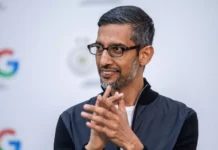MUMBAI: If political leadership in power makes a genuine effort in creating a larger consensus, they can effect changes in India’s quest for collective change and big bang economic reforms, Congress leader Jairam Ramesh said today.
“If Prime Ministers behave as Prime Ministers, and not as peacocks then you will have change,” he said speaking at the 6th Tata Literature Live here.
“On a serious note, change can happen by creating a larger consensus, in a larger constituency,” he said.
“It is not that you want the leadership to do what you want, but you want to be heard. The fact that you are not even heard is the problem,” he added, articulating his views in a panel discussion of his latest book ‘To the Brink and Back: India’s 1991 story’ which deals with the country’s liberalization reforms in 1991.
The Rajya Sabha MP, who was a part of the finance ministry in 1991 that is credited for ushering in India’s liberalization policy, said that the contemporary lessons one can draw from that era is how the leadership reached out to everybody in spite of facing heavy criticism, even from their own party members.
“In 1991, both Narasimha Rao, and Manmohan Singh (then prime minister, and finance minister respectively) knew what they wanted to do but they extended their hand of co-operation to all, despite heavy criticism from all fronts,” Ramesh said.
“If the political leadership at the top wants change then it must create conditions in which the change is accepted,” he said.
“We are not a top down totalitarian system. We are a system with different political parties, different interest groups, state governments, central government, and we have to create environment where people feel they are very much part of the decision making process,” he stressed.
He believes a lot of the 1991 legacy was a success but lot of it still remains to be settled.
Considering where the country was poised in 1991, Ramesh rated the industrial policy and trade policy both an “8 out of 10”, but the fiscal policy only a “4 out of 10”.
“Many years down the debates on the fiscal front are still incomplete. For example, the role of subsidies, role of the public sector, how much of deficits should governments run, are all political issues that are yet to be settled,” he said.
More than 60 per cent of the country was born after 1991, and they are in a “great mood for change”.
He said the leadership should articulate a vision that enables them to participate, and make their voices heard. –PTI







